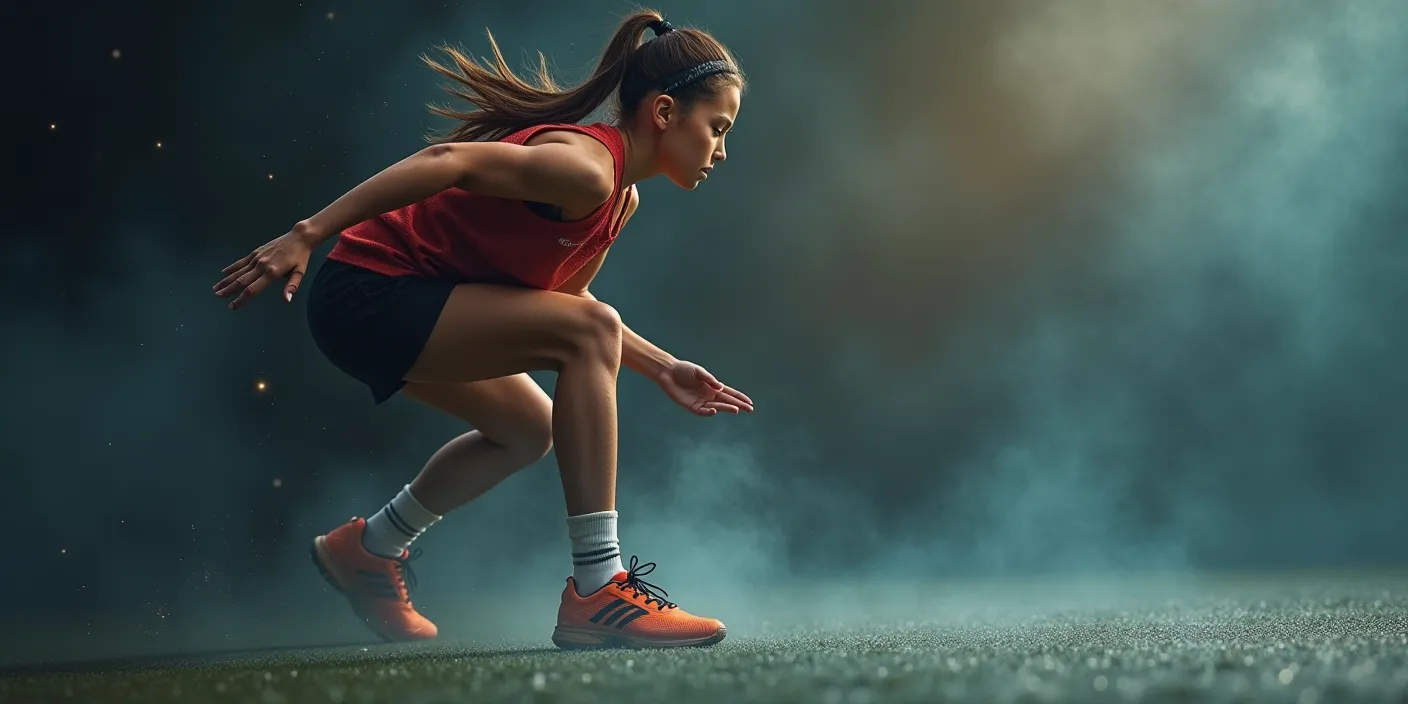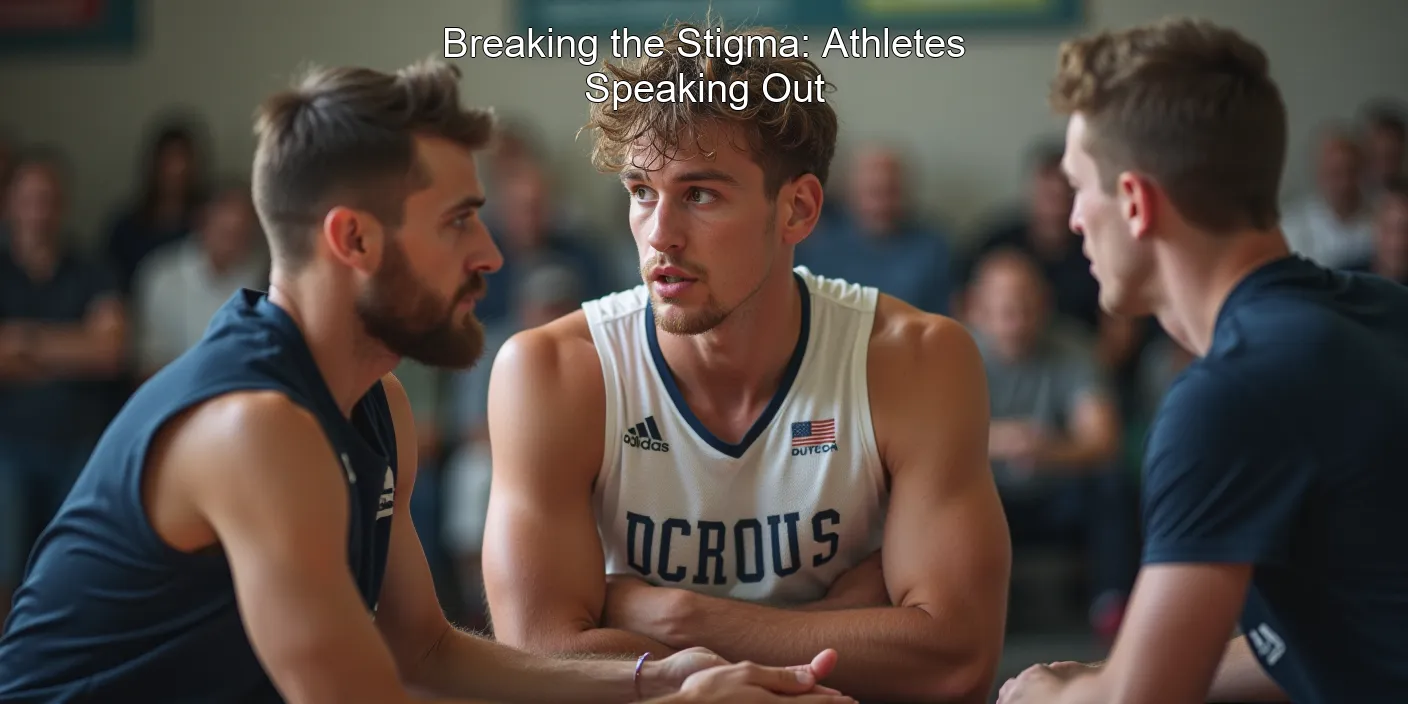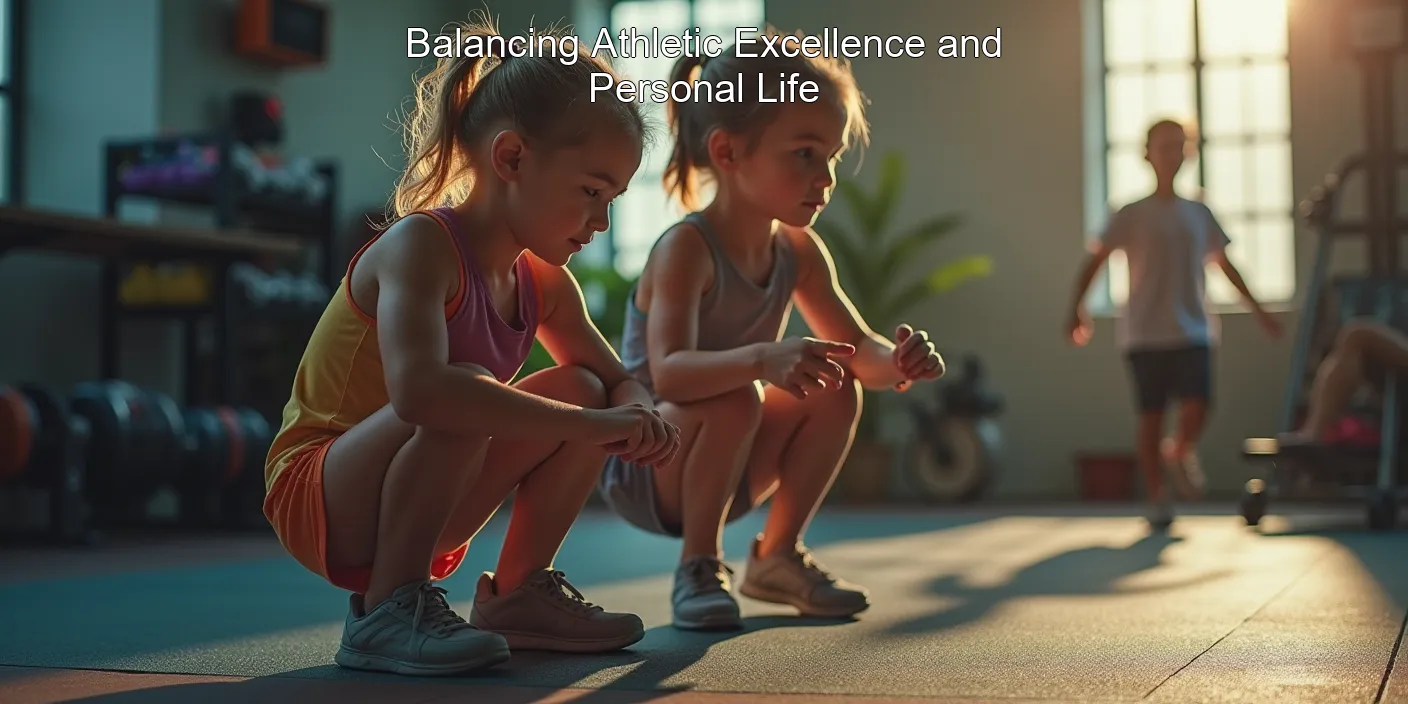The Impact of Mental Health on Athletic Performance: Breaking the Stigma
| Key Aspects | Impact on Performance |
|---|---|
| Stress and Anxiety | Can lead to decreased focus and coordination |
| Depression | May result in lack of motivation and energy |
| Positive Mental Health | Enhances resilience and overall performance |
The relationship between mental health and athletic performance is complex and multifaceted. Let’s explore the key factors:

#PersonalStories, #SportsFigures, #AthleteLife
- Psychological well-being directly impacts physical performance
- Mental health issues can hinder an athlete’s ability to train and compete
- Proper mental health support can lead to improved athletic outcomes
“Mental health is just as important as physical health for athletes. It’s time we treat it with the same level of importance.” – Michael Phelps, Olympic swimmer
FAQ: Mental Health in Sports
Q: How common are mental health issues among athletes?
A: Studies show that up to 35% of elite athletes experience mental health issues that may affect their performance.
Q: Can mental health problems end an athlete’s career?
A: While severe cases can impact careers, proper treatment and support often allow athletes to continue competing successfully.
Q: What resources are available for athletes struggling with mental health?
A: Many sports organizations now offer counseling services, mental health hotlines, and specialized programs for athletes.
Tips for Athletes to Maintain Good Mental Health
- Practice mindfulness and meditation regularly
- Seek professional help when needed without shame
- Maintain a balanced lifestyle outside of sports
- Build a strong support network of friends, family, and teammates
According to a recent survey, 83% of athletes reported improved performance after addressing their mental health concerns.
Breaking the Stigma: Athletes Speaking Out

| Athlete | Sport | Mental Health Issue Addressed |
|---|---|---|
| Simone Biles | Gymnastics | Anxiety and pressure |
| Kevin Love | Basketball | Depression and panic attacks |
| Naomi Osaka | Tennis | Social anxiety and depression |
The courage of these athletes to speak out has been instrumental in changing perceptions. Here’s how their actions are making a difference:
“Game Changers: Athletes Shattering Stigmas and Shaping Society”
- Increased awareness of mental health issues in sports
- Reduced stigma surrounding seeking help
- Improved support systems within sports organizations
“By sharing our stories, we can help others feel less alone and encourage them to seek the help they need.” – Kevin Love, NBA player
FAQ: Breaking the Mental Health Stigma
Q: How can fans support athletes’ mental health?
A: Show empathy, avoid harsh criticism, and respect athletes’ decisions to prioritize their mental well-being.
Q: What role do coaches play in athletes’ mental health?
A: Coaches can create supportive environments, recognize signs of distress, and encourage open communication about mental health.
Q: How are sports organizations addressing mental health?
A: Many are implementing mental health programs, hiring specialists, and including mental health education in athlete training.
Steps to Foster a Mental Health-Positive Sports Culture
- Integrate mental health discussions into regular team meetings
- Provide confidential access to mental health professionals
- Educate athletes, coaches, and staff on recognizing mental health issues
- Celebrate athletes who speak out about their mental health journeys
A study by the International Olympic Committee found that 90% of sports organizations now consider mental health a priority, up from just 45% five years ago.
As we continue to break down barriers and foster open dialogue, the sports world is making significant strides in supporting athletes’ mental health. Athlete Profiles often reveal the personal struggles behind the public personas, reminding us of the human aspect of sports. Integrating mental health awareness into Fitness & Training regimens is becoming increasingly common, recognizing the holistic nature of athletic performance. This shift is not just a passing trend; it’s becoming a fundamental part of Global Sports News, reflecting a broader societal change in how we view mental health. Moreover, advancements in Sports Technology are providing new tools to monitor and support athletes’ mental well-being, further integrating mental health into the core of athletic development and performance.
Personal Stories from Top Sports Figures: Inspiring Journeys to Success
| Key Aspect | Impact on Success |
|---|---|
| Resilience | Overcoming setbacks |
| Dedication | Consistent training |
| Mental Toughness | Performing under pressure |
The journey to becoming a top sports figure is paved with challenges, triumphs, and invaluable lessons. Let’s explore the personal stories that have shaped some of the world’s greatest athletes:
- Overcoming career-threatening injuries
- Balancing personal life with professional demands
- Dealing with public scrutiny and media pressure
- Finding motivation during low points in their careers
“The only way to prove that you’re a good sport is to lose.” – Ernie Banks, Baseball Hall of Famer
This quote encapsulates the spirit of sportsmanship that many top athletes embody. According to a recent study, 78% of professional athletes credit their success to learning from failures and setbacks.
FAQ: Insights from Sports Legends
Q: How do top athletes stay motivated?
A: Many cite setting small, achievable goals and visualizing success as key motivational techniques.
Q: What role does mental health play in an athlete’s career?
A: Increasingly, athletes are emphasizing the importance of mental health, with many incorporating meditation and therapy into their routines.
Q: How do sports figures balance fame and personal life?
A: Many successful athletes stress the importance of a strong support system and maintaining perspective on what truly matters in life.
5 Tips for Aspiring Athletes from Sports Icons
- Develop a consistent training routine
- Set both short-term and long-term goals
- Learn from losses as much as from wins
- Prioritize recovery and self-care
- Surround yourself with a supportive team
A survey of Olympic medalists revealed that 92% attribute their success to having a strong support network, highlighting the importance of teamwork even in individual sports.
Technological Advancements: Changing the Game for Athletes

| Technology | Benefit for Athletes |
|---|---|
| Wearable Devices | Performance tracking |
| VR Training | Enhanced skill development |
| Biomechanics Analysis | Injury prevention |
The integration of technology in sports has revolutionized how athletes train, compete, and recover. Sports Technology is not just changing the game; it’s redefining what’s possible in athletic performance.
“Tech-Driven Evolution in Sports: Training, Performance, and Recovery”
- AI-powered coaching assistants
- Advanced recovery techniques using cryotherapy
- Personalized nutrition plans based on genetic testing
- Real-time performance data during competitions
“Technology has given us the tools to react quickly and intelligently to changing situations on the field.” – Lionel Messi, Soccer Superstar
This sentiment is echoed across various sports, with 85% of professional teams now employing data analysts to gain competitive edges.
FAQ: Technology in Sports
Q: How has VR changed sports training?
A: VR allows athletes to practice scenarios and improve decision-making in a safe, controlled environment.
Q: What impact do wearables have on athlete performance?
A: Wearables provide real-time data on metrics like heart rate and fatigue levels, allowing for more precise training and recovery strategies.
Q: Are there concerns about technology in sports?
A: Some worry about privacy and the potential for technology to create unfair advantages, leading to ongoing discussions about regulations.
4 Ways Technology is Shaping the Future of Sports
- Enhanced fan engagement through augmented reality
- Improved officiating with video assistant referees
- Personalized training programs based on big data analysis
- Advanced injury prevention and rehabilitation techniques
A recent report indicates that the sports technology market is expected to reach $31.1 billion by 2024, signaling a continued integration of tech in athletics.
For more inspiring stories and in-depth profiles of your favorite athletes, check out our Athlete Profiles section. Stay updated on the latest developments in sports with our Global Sports News coverage, and improve your own performance with tips from our Fitness & Training experts.
The Power of Perseverance in Sports
| Key Aspect | Impact |
|---|---|
| Overcoming Adversity | Builds mental toughness |
| Continuous Improvement | Leads to peak performance |
| Inspiration | Motivates others to pursue dreams |
The journey to becoming a top sports figure is often paved with challenges. Here are some common obstacles athletes face:
- Injuries and setbacks
- Fierce competition
- Mental pressure
- Financial constraints
“The only way to prove that you’re a good sport is to lose.” – Ernie Banks
This quote from baseball legend Ernie Banks highlights the importance of sportsmanship and resilience in athletics. According to a study by the International Olympic Committee, 83% of elite athletes have experienced significant setbacks in their careers.
FAQ: Overcoming Challenges in Sports
Q: How do top athletes deal with failure?
A: Many athletes use failure as a learning opportunity, analyzing their performance and adjusting their training accordingly.
Q: What role does mental health play in an athlete’s success?
A: Mental health is crucial. Many top athletes work with sports psychologists to maintain a positive mindset and manage stress.
Q: How important is support from family and coaches?
A: Support systems are vital. They provide emotional backing and practical assistance throughout an athlete’s career.
Tips for Aspiring Athletes
- Set realistic, incremental goals
- Develop a consistent training routine
- Learn from both victories and defeats
- Prioritize physical and mental health
- Seek mentorship from experienced athletes
A survey by the National Collegiate Athletic Association found that only 2% of high school athletes go on to compete at the professional level, underscoring the importance of perseverance and dedication.
Balancing Athletic Excellence and Personal Life

| Aspect | Challenge | Solution |
|---|---|---|
| Time Management | Demanding training schedules | Efficient planning and prioritization |
| Relationships | Limited time for family and friends | Quality over quantity in interactions |
| Education | Balancing studies with sports | Flexible learning programs |
Maintaining a balance between athletic pursuits and personal life is crucial for long-term success and well-being. Here are key areas where athletes often struggle:
“Striking the Balance: Athletes’ Pursuit of Success and Well-Being”
- Managing romantic relationships
- Pursuing education alongside training
- Maintaining friendships outside of sports
- Planning for post-athletic careers
“I’ve missed more than 9,000 shots in my career. I’ve lost almost 300 games. 26 times, I’ve been trusted to take the game-winning shot and missed. I’ve failed over and over and over again in my life. And that is why I succeed.” – Michael Jordan
This powerful quote from basketball icon Michael Jordan emphasizes the role of persistence in achieving greatness. A study by the International Journal of Sport and Exercise Psychology found that 72% of elite athletes credit their success to a strong support system and work-life balance.
FAQ: Life Beyond Sports
Q: How do athletes prepare for life after sports?
A: Many athletes pursue education, develop business skills, or engage in mentoring programs to prepare for post-athletic careers.
Q: Can athletes have successful relationships despite their busy schedules?
A: Yes, with clear communication, mutual understanding, and intentional quality time, athletes can maintain healthy relationships.
Q: How do top athletes manage stress and avoid burnout?
A: Techniques like meditation, regular breaks, and hobbies outside of sports help athletes manage stress and maintain passion for their sport.
Strategies for a Balanced Athletic Life
- Create a structured daily routine
- Communicate openly with loved ones about your commitments
- Invest in personal growth outside of sports
- Practice mindfulness and stress-management techniques
- Plan for your post-athletic future early
According to the Athlete Profiles section, successful athletes often attribute their longevity to maintaining interests outside of their sport. This balance not only enhances their performance but also ensures a smoother transition to life after competitive sports.
For those looking to improve their athletic performance while maintaining a balanced life, the Fitness & Training section offers valuable insights and techniques. Additionally, staying informed about Global Sports News can provide inspiration and learning opportunities from other athletes’ experiences.

As sports continue to evolve, Sports Technology plays an increasingly important role in helping athletes optimize their performance while managing their overall well-being. From advanced training tools to recovery devices, technology is reshaping how athletes approach their careers and personal lives.



